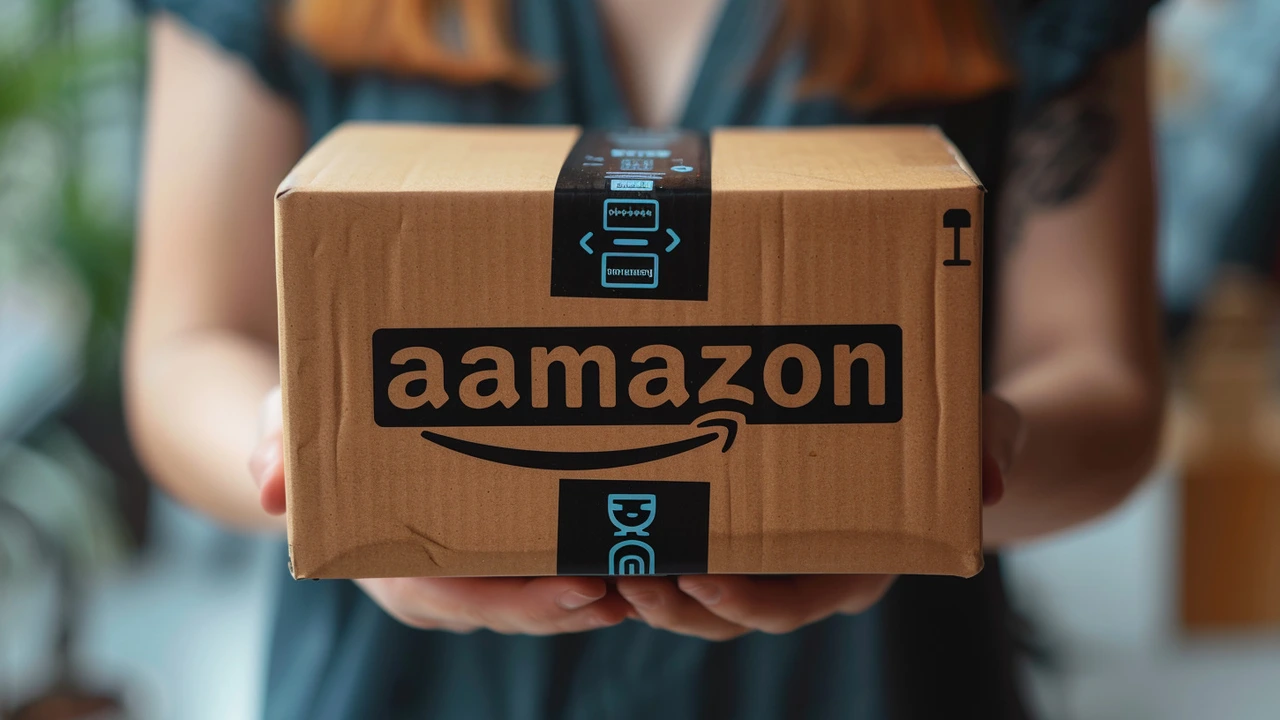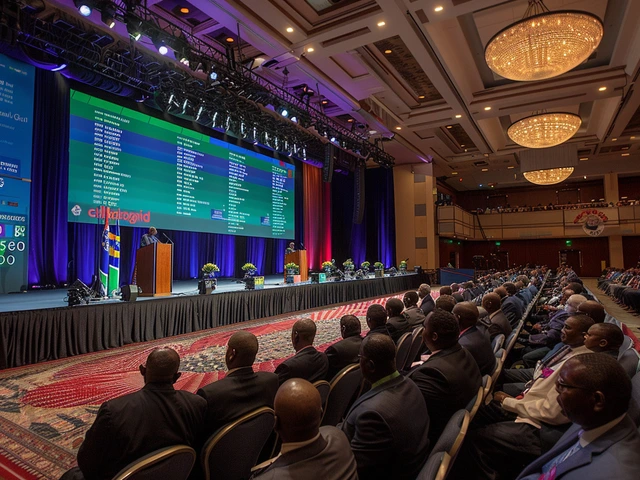Amazon Enters South Africa's E-Commerce Scene
Amazon, the global e-commerce titan, has recently made its official entry into the South African market. This launch has been marked by a significant elaboration on competitive pricing and the introduction of attractive incentives such as free delivery vouchers and a specials tab designed to offer added discounts. However, the absence of Amazon's proprietary hardware such as Kindle e-readers, Fire TV, Ring video doorbells, and Alexa-enabled smart speakers has left a noticeable gap in its South African portfolio.
Unlike its established presence in many countries where Amazon blends its retail prowess with an array of digital services and exclusive electronic products, the scenario in South Africa stands notably different. Presently, South African consumers will not have access to popular services such as Amazon Music and Amazon Prime. This situation presents a stark contrast to local e-commerce platforms like Takealot, which lists a variety of Amazon products and even features digital services available for the local market.
One of the initial perks that Amazon is offering to attract consumers is free delivery on the first order without a minimum spend requirement, a move evidently designed to capture market share swiftly. Following this initial offer, delivery charges will be waived only for orders exceeding R500. The similarity in Amazon's and Takealot's returns policies could also be a strategy to familiarize local consumers with Amazon's process while minimizing resistance to the new market entrant.
Strategic Partnerships and Consumer Adaptation in South Africa
For its logistics operations, Amazon has opted for partnerships with local service providers. This regional strategy includes offering several pickup points across the country, potentially easing the transition for customers used to different e-commerce operations. These localized delivery solutions also emphasize Amazon's attempt to tailor its services to meet specific market needs, a significant move to engrain itself into the South African e-commerce landscape.
Yet, the exclusion of Amazon-branded products raises questions. The strategic reasoning behind not introducing popular gadgets and electronics remains unexplained as company officials have not yet responded to queries regarding this apparent omission. Potential factors could include logistical challenges, local regulatory frameworks, or a phased plan that involves gradually introducing these products based on market response.
Comparative Analysis: Amazon vs. Takealot
When comparing the new service offerings of Amazon with those of Takealot, there are evident similarities and differences. Both platforms offer a broad range of products, yet Takealot maintains a more extensive list at this early stage of Amazon's entry. The competitive edge for Amazon might not just hinge on product variety but on streamlining and possibly innovating the customer experience.
This aspect of customer experience could be crucial because, despite the absence of Amazon's digital services and gadgets, the foundational e-commerce service components—like competitive pricing, initial free delivery, and customer service policies—are aligned closely with Takealot's. This alignment suggests that Amazon is aware of the local market's dynamics and consumer expectations, which could play to their advantage despite the current limitations.
Future Prospects and Market Dynamics
Looking ahead, the trajectory for Amazon in South Africa could involve a nuanced balancing act of introducing localized services that resonate with consumer preferences while strategically deciding the right time to introduce its proprietary products and digital solutions. The market's response to Amazon's current setup will likely influence these future decisions. Monitoring competitive reactions, consumer feedback, and operational challenges will be essential for Amazon as it navigates this new and competitive landscape.
In conclusion, Amazon's launch in South Africa is a major development in the e-commerce sector. While it currently lacks the integrated digital ecosystem it offers elsewhere, its competitive strategies and local partnerships could pave the way for a unique market adaptation. How this will impact the local e-commerce market and consumer choices remains to be seen, setting the stage for an intriguing watch.





Comments
Congrats Amazon 🎉 This could mean cheaper prices and fast shipping for South Africa 🚀
The arrival of a global titan such as Amazon in the South African digital marketplace invites a reflection on the broader currents of globalization and consumer sovereignty. By offering price competition without the usual suite of proprietary gadgets, the company seems to be testing the elasticity of demand in a market accustomed to homegrown platforms. This strategic restraint could be interpreted as a cultural accommodation, allowing local tastes to shape the eventual rollout of services like Prime and Alexa. Yet the underlying narrative remains one of technological diffusion, where the boundaries between global standards and regional preferences are continually renegotiated. In this light, the South African consumer emerges as both participant and observer in a subtle dance of economic integration.
It's evident Amazon is holding back its flagship devices, perhaps to avoid stepping on local hardware suppliers. While the retail side looks aggressive, the omission of Kindle and Echo feels like a half‑hearted entry. Still, the pricing strategy could lure many shoppers away from Takealot.
Amazon's partnership model leverages existing logistics providers here which should speed up deliveries. The pickup points are a practical solution for urban and rural shoppers alike.
I can see the excitement building among shoppers looking for lower prices and free delivery. The lack of Prime might be a downside but the initial offers are appealing. Let's hope the service quality matches the hype.
They're probably using local partners to hide data harvesting plans.
From a supply‑chain perspective, the omission of proprietary hardware reduces inbound freight complexity and lowers tariff exposure. By focusing on third‑party SKUs Amazon can optimize inventory turnover ratios and achieve a leaner fulfilment footprint. This approach also sidesteps the regulatory hurdles associated with importing consumer electronics. Ultimately, the market entry acts as a sandbox for calibrating demand elasticity before scaling up device roll‑outs.
That makes sense – a lean start can iron out the kinks before adding more products. Good call on the strategic patience.
The unfolding of Amazon's venture into South Africa reads like a modern parable of global commerce meeting local nuance.
The absence of Kindle, Fire TV, and Alexa devices could be read as a concession to local regulatory climates, where import duties and certification processes are notoriously complex.
Alternatively, it may be a tactical test: gauge the appetite for pure commerce before investing in the costly ecosystem that requires ongoing content licensing and cloud infrastructure.
From a logistical angle, partnering with established South African couriers short‑circuits the need for building a proprietary delivery network from scratch.
Such alliances can also engender goodwill, as local businesses benefit from the increased volume and technology transfer that accompanies a big‑player presence.
However, the trade‑off is the potential dilution of the Amazon brand experience that many users worldwide have come to expect.
Customers may find the lack of integrated services like Prime Video or Amazon Music a conspicuous void, especially as competitors like Takealot already stock these offerings through third parties.
The strategic silence from Amazon's corporate communications regarding the product gap fuels speculation, a fertile ground for both hopeful optimism and cynical doubt.
Historically, Amazon has taken a phased approach in new territories, first establishing a robust retail foothold and later layering services once market confidence is secured.
If South African shoppers respond positively to the pricing and delivery promises, the next wave could indeed bring in the coveted devices and streaming bundles.
Until then, the market will continue to watch, compare, and adapt, turning this rollout into a live case study of globalization tempered by local sensibility.
The rollout feels half‑baked; presenting a stripped‑down Amazon that lacks its hallmark services is a disservice to consumers. It appears the company is more interested in capturing market share than delivering its full value proposition. Until the ecosystem arrives, shoppers are left with a diluted experience.
Wow, Amazon is basically dropping a giant cheat code into the SA market – lower prices, free shipping, and a whole lot of mystery. It's like they've handed us a teaser trailer and walked away. Let's see if they can back it up with the full blockbuster.
I think its a great start for South Africa gettin cheaper stuff online. But we need the full amazon experience soon!
Nice move Amazon, looking forward to more deals 😊. Hope they bring Prime soon!
The introduction is a noteworthy development in the e‑commerce sector. I anticipate a gradual expansion of services.
Super exciting news! Can't wait to see Amazon grow in South Africa 🚀!